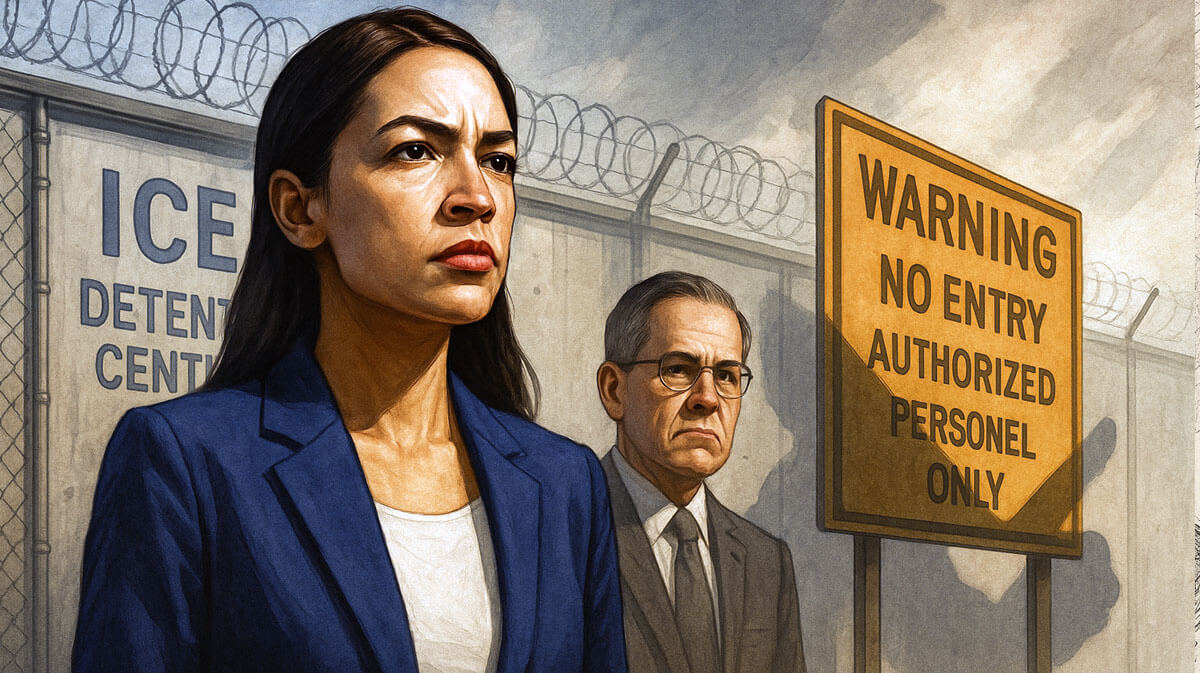
The U.S. Department of Homeland Security (DHS) has directed a stern warning at Representative Alexandria Ocasio-Cortez (D-NY), cautioning her against any actions that might mirror the recent arrest of a Democratic mayor at an immigration facility. This development emerges in the wake of a contentious encounter at an Immigration and Customs Enforcement (ICE) detention center in New Jersey, which led to the apprehension of Mayor Ras Baraka.
DHS Public Affairs Assistant Secretary Tricia McLaughlin expressed the warning during an appearance on the program "The Bottom Line," as reported by Trending Politics. McLaughlin emphasized the possibility of arrest if Ocasio-Cortez were to trespass or engage in assault against law enforcement officers. The events in question unfolded when Baraka, alongside other Democratic representatives, attempted to gain entry to the Delaney Hall facility and subsequently clashed with federal agents.
The incident was described by DHS as a turbulent confrontation where the group "stormed" the gates after access was denied. Additionally, ICE released bodycam footage which depicted an altercation involving lawmakers and ICE personnel. In the footage, Representative LaMonica McIver (D-NJ) was alleged to have assaulted an ICE officer.
In response to the fracas, Rep. Ocasio-Cortez took to Instagram with a video message aimed at ICE. She warned of repercussions should any federal officers physically engage with attending lawmakers, explicitly mentioning Representative Bonnie Watson Coleman (D-NJ). Ocasio-Cortez's statement was met with a rebuttal from McLaughlin, who underscored the established procedures for lawmakers wishing to visit such facilities. She highlighted the need for a 24-hour notice for requested tours and condemned the political maneuvering that disregarded the safety of law enforcement officers.
The Delaney Hall detention center is notably tasked with housing individuals suspected or convicted of severe crimes, including sexual assault, child exploitation, gang affiliation, and terrorism. The recent altercation and Ocasio-Cortez's subsequent comments have sparked a complex debate over congressional oversight, the rights and duties of elected officials, and the protocols governing access to federal detention facilities.
As the story develops, the implications of these events are multifaceted. They raise questions about the balance between necessary oversight of government facilities and the respect for law enforcement protocols designed to ensure safety and order. The incident also underscores the tensions between local and federal authorities when dealing with the contentious issue of immigration enforcement.





